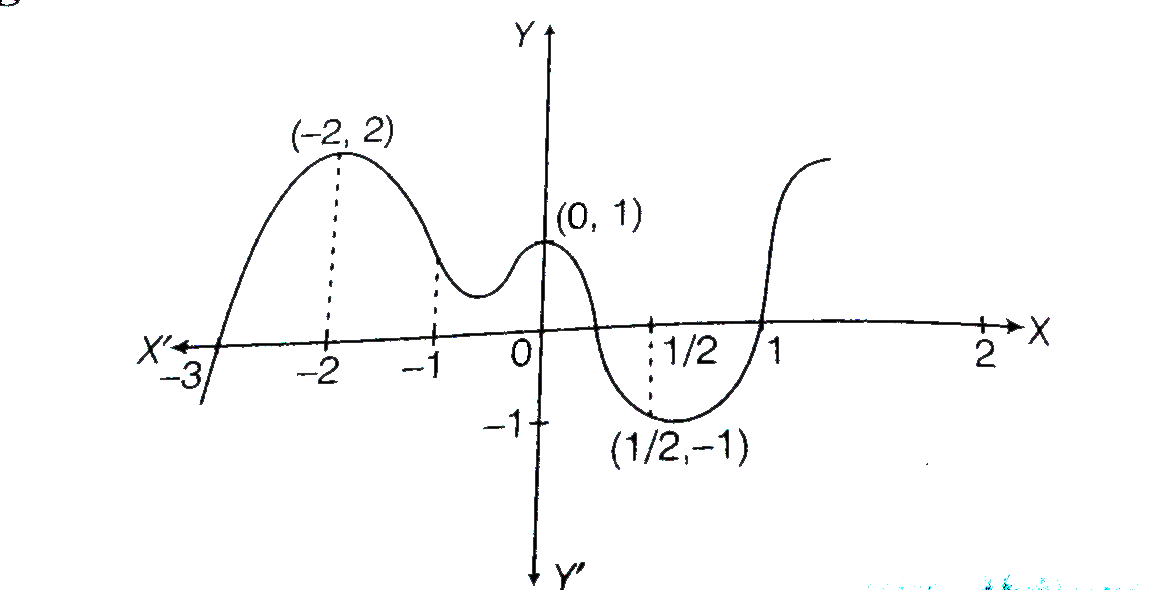A quadratic trinomial P(x)=ax2+bx+c is such that the equation P(x)=x has no real roots. Prove that in this case equation P(P(x))=x has no real roots either.Solution in Bengali
Step by step video & image solution for A quadratic trinomial P(x)=a x^2+b x+c is such that the equation P(x)=x has no real roots. Prove that in this case equation P(P(x))=x has no real roots either. by Maths experts to help you in doubts & scoring excellent marks in Class 11 exams.
Updated on:21/07/2023Topper's Solved these Questions
Similar Questions
Prove that (.2nC0)2−(.2nC1)2+(.2nC2)2−..+(.2nC2n)2 = (−1)n.2nCn.
View SolutionLet A(0,1),B(1,1),C(1,−1),D(−1,0) be four points. If P is any other point, then PA+PB+PC+PD≥d, when [d] is where [.] represents greatest integer.
View SolutionFind the value of p for which the quadratic equation x(x-4)+p0 has real roots.
View SolutionA quadratic trinomial P(x)=ax2+bx+c is such that the equation P(x)=x has no real roots. Prove that in this case equation P(P(x))=x has no real roots either.
View SolutionA monic quadratic trinomial P(x) is such that P(x)=0 and P(P(P(x)))=0 have a common root,then
View SolutionThe quadratic equation p(x)=0 with real coefficients has purely imaginary roots. Then the equation p(p(x))=0 has
View SolutionThe roots of a quadratic equation xp=px are
View SolutionThe quadratic equation p(x)=0 with real coefficients has purely imaginary roots. Then the equation p(p(x))=0 has A. only purely imaginary roots B. all real roots C. two real and purely imaginary roots D. neither real nor purely imaginary roots
View SolutionA quadratic trinomial P(x)=ax2+bx+c is such that the equation P(x)=x has no real roots. Prove that in this case equation P(P(x))=x has no real roots either.
View SolutionA quadratic trinomial P(x)=ax2+bx+c is such that the equation P(x)=x has o real roots. Prove that in this case equation P(P(x))=x has no real roots either.
View Solutionद्विघात समीकरण x2+(p+iq)x+3i=0 में p और q वास्तविक है यदि मूलों के वर्गो का योग 8 है, तो
View Solutionयदि p वास्तविक है तथा समीकरण p(x + 1) (x + 3) + 2 = 0 के मूल वास्तविक नहीं है , तो p का मान ज्ञात कीजिये।
View SolutionThe minimum number of real roots of equation (p''(x))2+p'(x).p'''(x)=0

View SolutionThe quadratic equations p(x) =0 with real coefficients has purely imaginary roots. Then the equation p(p(x))=0 has
View SolutionThe quadratic equation p(x)=0 with real coefficients has purely imaginary roots. Then the equation p(p(x))=0 has A. only purely imaginary roots B. all real roots C. two real and purely imaginary roots D. neither real nor purely imaginary roots
View SolutionA quadratic trinomial P(x)=ax2+bx+c is such that the equation P(x)=x has no real roots. Prove that in this case equation P(P(x))=x has no real roots either.
View Solution
